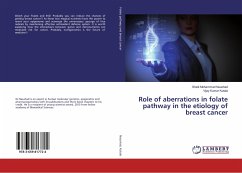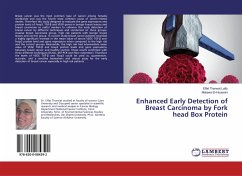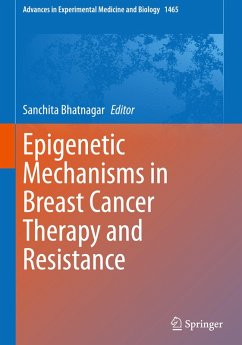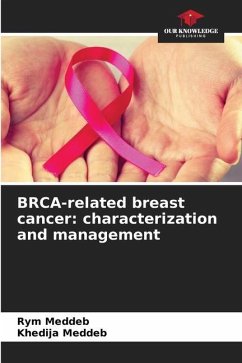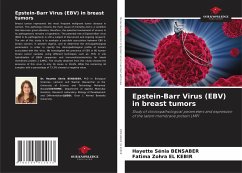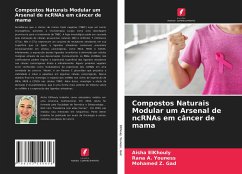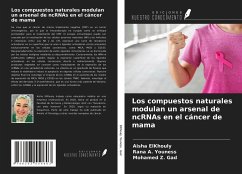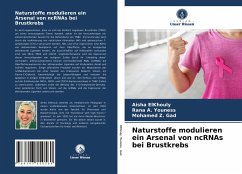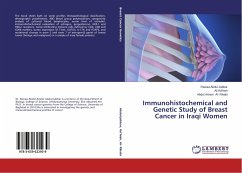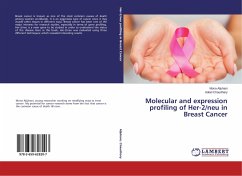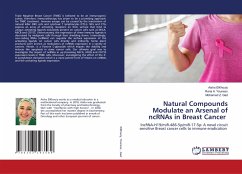
Natural Compounds Modulate an Arsenal of ncRNAs in Breast Cancer
lncRNA-H19/miR-486-5p/miR-17-5p: A novel circuit sensitive Breast cancer cells to immune eradication
Versandkostenfrei!
Versandfertig in 6-10 Tagen
41,99 €
inkl. MwSt.

PAYBACK Punkte
21 °P sammeln!
Triple Negative Breast Cancer (TNBC) is believed to be an immunogenic tumor, therefore; immunotherapy has arisen to be a promising approach for TNBC treatment. Immune escape can be caused by the inactivation of natural killer (NK) cells and cytotoxic T lymphocytes (CTLs). NKs and CTLs express an array of activating receptors on their surface that bind to unique activating ligands exclusively present on cancer cells such as MICA, MICB and CD155. Unfortunately, the expression of these immune ligands is decreased by malignant cells through their shedding down. Interestingly, non-coding RNAs (ncRN...
Triple Negative Breast Cancer (TNBC) is believed to be an immunogenic tumor, therefore; immunotherapy has arisen to be a promising approach for TNBC treatment. Immune escape can be caused by the inactivation of natural killer (NK) cells and cytotoxic T lymphocytes (CTLs). NKs and CTLs express an array of activating receptors on their surface that bind to unique activating ligands exclusively present on cancer cells such as MICA, MICB and CD155. Unfortunately, the expression of these immune ligands is decreased by malignant cells through their shedding down. Interestingly, non-coding RNAs (ncRNAs) can regulate the surface expression of the activating ligands on cancer cells directly and indirectly. Some plant products were known as modulators of ncRNAs expression in a variety of cancers. Vitexin, is a flavone C-glycoside which impairs the viability and induces the apoptosis in some cancer cells. Our ultimate goal was to investigate the impact of ncRNAs in up-streaming MICA, MICB and CD155 expression levels in TNBC cells. Moreover; investigating the effect of the 3'-O-acetylvitexin derivative which is a more potent form of Vitexin on ncRNAs and the activating ligands expression.



